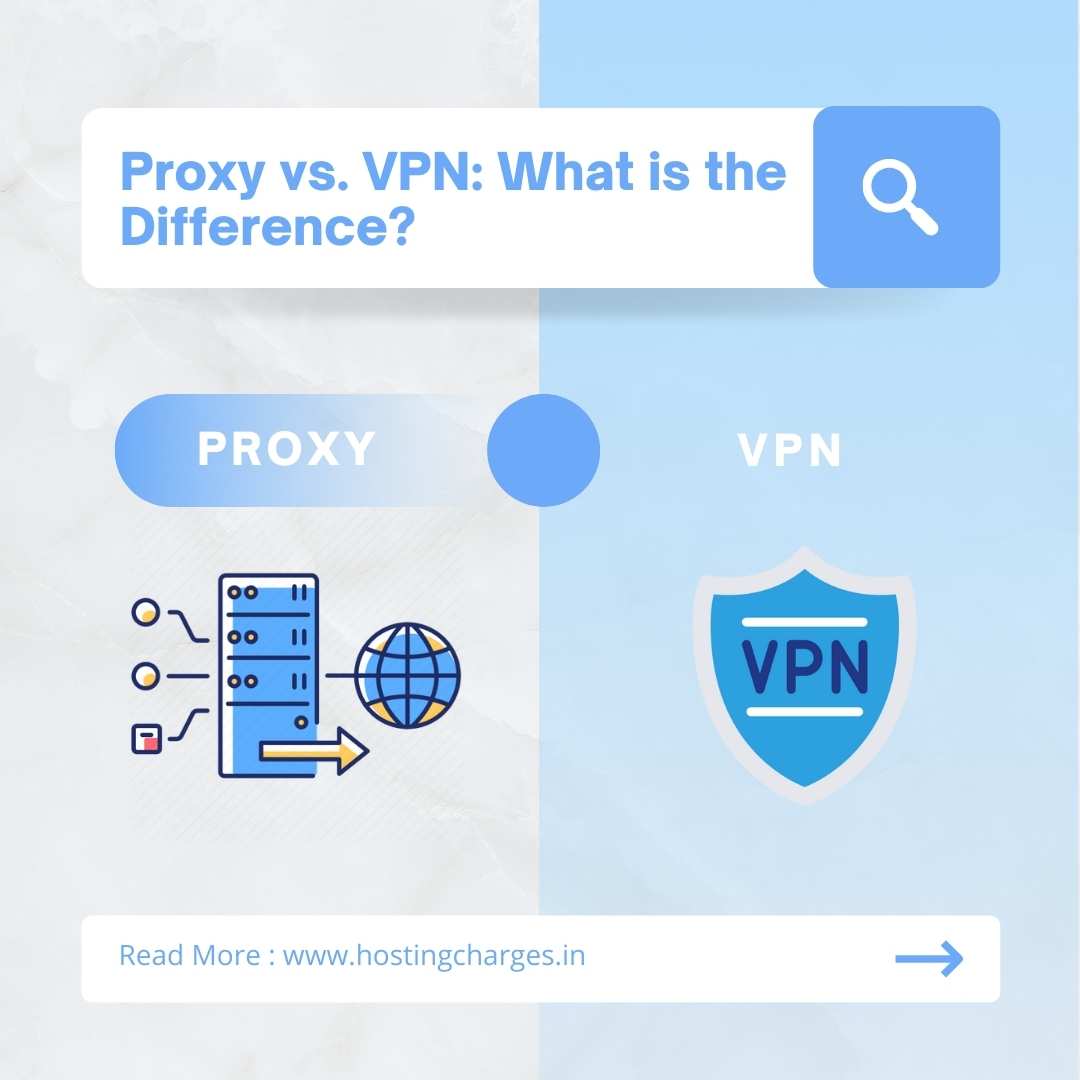In today’s digital world, privacy and security are top priorities. You’ve probably heard of VPNs and proxy servers as two ways to stay safe online, and while both can hide your identity and help you access restricted content, they don’t work in quite the same way.
A VPN wraps your entire internet connection in a protective bubble, while a proxy simply acts as a gateway. So, what does that mean for you?
Let’s dive into the differences and find out which option offers the level of privacy and security you need.
VPN vs. Proxy: A Quick Overview
A VPN and a proxy server both mask your IP address by redirecting your internet traffic through a remote server, but they do so in distinct ways. With a proxy, only one app or service—like your browser—connects through the proxy server.
This setup hides your IP but leaves other apps unprotected. On the other hand, a VPN routes all of your internet traffic through an encrypted tunnel, giving you an added layer of privacy and security across your entire device.
While both options will replace your IP address with the server’s, only a VPN truly protects your data from prying eyes by encrypting it. This makes VPNs a better choice for secure browsing, online privacy, and protection against hackers.
Proxies are useful for basic browsing, but they can’t match the full privacy and security package a VPN offers.
What is a Proxy Server and How Does it Work?
A proxy server works as a middleman between your device and the websites you visit. When you connect through a proxy, it reroutes your internet traffic to a remote server, which then connects to the site on your behalf. This means the website sees the proxy server’s IP address rather than your own, providing a level of anonymity.
However, proxies only reroute traffic for a specific app or browser you configure them with and don’t encrypt your data, leaving it open to potential monitoring.
There are different types of proxy servers for various uses. HTTP proxies are designed for web browsing and work well for rerouting browser traffic. SOCKS proxies can handle more than just web pages—they support all kinds of traffic but might run slower due to their popularity.
Transparent proxies work behind the scenes, often set up by employers, parents, or public Wi-Fi providers to monitor activity or control access. There are also private proxies, which assign you a dedicated IP, useful for consistency in certain tasks but not truly private since they don’t encrypt data.
In short, proxies are helpful for simple IP masking, but they don’t offer the full security and privacy features that a VPN does.
What is a Virtual Private Network and How Does it Work?
A Virtual Private Network, or VPN, works by rerouting all of your internet traffic through a remote server and encrypting it. Like a proxy, it hides your IP address, so the websites you visit can’t track your original location. However, unlike a proxy that only works on specific apps or browsers, a VPN operates at the operating system level.
This means every piece of data sent from your device, whether it’s from your browser or a background app, goes through the VPN server, offering full-device protection.
The encryption provided by a VPN is a game-changer for online privacy. Since your data is encrypted, your Internet Service Provider (ISP), government agencies, or potential hackers can’t monitor your online activity.
The only thing visible to them is that you’re connected to a VPN server. This added layer of security means a VPN can protect you from website tracking, government surveillance, and cybercriminals attempting to intercept your connection.
However, it’s essential to choose a reputable VPN provider, as low-quality or shady VPNs can compromise your data instead of protecting it.
Comparing VPN and Proxy: Main Differences
When comparing VPNs and proxies, several key differences stand out. A VPN provides a higher level of security by encrypting all your internet traffic, making it an ideal choice for handling sensitive data.
With a VPN, you’re protected from ISP tracking, government surveillance, and hackers. On the other hand, a proxy doesn’t offer encryption, so it’s better suited for simpler tasks like bypassing geographic restrictions rather than protecting private information.
VPNs also work at the operating system level, meaning they route all your device’s traffic through a secure server, while proxies work only at the application level, rerouting traffic for a specific app or browser. This makes VPNs more comprehensive, though they may run slightly slower due to the encryption process.
Most VPNs are paid services (with good reason—free options can often track or limit your data), while proxies are often free. However, VPNs tend to be more reliable, with fewer dropped connections compared to proxy servers.
Check out the list of Best 10+ (Paid) VPN Services in 2025
In short, VPNs are better for privacy and security, while proxies are useful for light browsing tasks that don’t involve sensitive data.
Check here for the list of Top Proxy Servers in 2025
Conclusion
In summary, both VPNs and proxies offer ways to hide your IP address by rerouting traffic through a remote server, but they’re designed for different needs. If privacy and security are top priorities for you, a VPN is the clear choice, thanks to its encryption and full-device protection.
Proxies are handy for quick tasks that don’t involve sensitive data, but they don’t match a VPN’s level of privacy. So, if online security matters to you, a VPN is worth considering as your go-to tool.
FAQs
Is VPN better than a proxy?
Yes, a VPN is generally better than a proxy if privacy and security are what you’re after. Unlike a proxy, which just routes your traffic through a middle server without additional protection, a VPN goes a step further. It encrypts all of your traffic and hides your IP, making it much harder for anyone to track or monitor your activity.
Plus, a VPN works at the operating system level, so it secures everything you do online—not just specific apps or browsers. In short, when comparing the two, VPNs are a clear winner for comprehensive online security.
Do I need a proxy if I have a VPN?
No, if you have a VPN, you don’t really need a proxy. A good VPN already covers what a proxy does—and more. It hides your IP, encrypts your data, and secures all your online activity.
While you could use a proxy extension if you just need a quick IP change, remember that proxies don’t offer the same level of security, and some might even collect your data. For full privacy and protection, sticking with a VPN is usually the best choice.
Can I use VPN and proxy together?
Yes, you can use a VPN and proxy together, but it’s usually not worth the hassle. Setting them up to work together can be tricky, and adding a proxy on top of your VPN often just slows down your connection without providing much extra benefit.
In most cases, it’s simpler and more effective to use either a VPN or a proxy, depending on your needs, rather than both at once.
Should I use a free proxy or a free VPN?
It’s usually best to avoid free proxies and free VPNs. While they might seem like a good deal, they often come with hidden costs to your privacy and security. Free services need to make money somehow, which can mean tracking your data, flooding you with ads, or limiting your usage.
Premium VPNs, on the other hand, invest in strong encryption, faster speeds, 24/7 support, and a reliable server network to keep you secure online. Spending a little on a trustworthy VPN can save you from bigger headaches in the long run.
 Get Listed
Get Listed 

